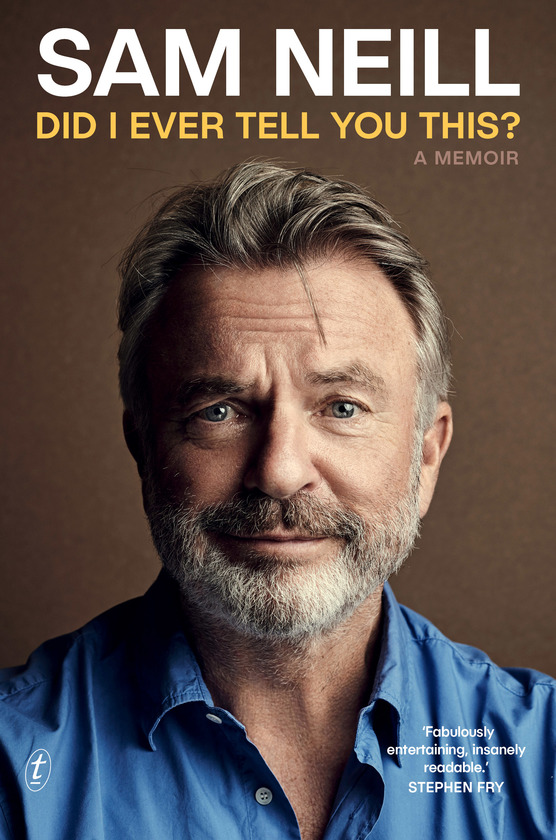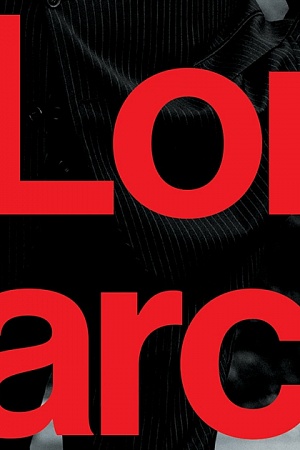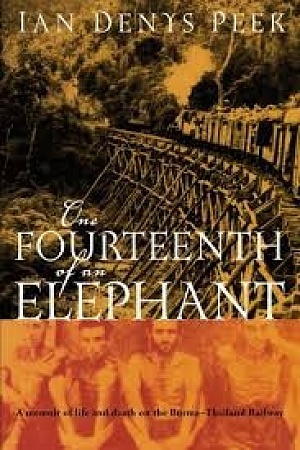Did I Ever Tell You This?: A memoir
Text Publishing, $49.99 hb, 398 pp
Everything and Nothing: A memoir
Allen & Unwin, $34.99 pb, 295 pp
Veiled performances
Despite their proliferation, celebrity memoirs often seem incapable of justifying their own existence: a string of carefully curated anecdotes woven together to approximate a life already lived in the glare of the media. Perhaps because actors are on the one hand concealed by the roles they play, and on the other exposed to the prying eyes of the public, their autobiographies tend to inhabit a paradoxical netherworld of disclosure and obfuscation, cautious oscillations on a back off/come hither axis. Both Sam Neill’s and Heather Mitchell’s recent memoirs traverse this uneasy ground, feeding us sometimes incredibly intimate details while remaining stubbornly mute on the larger questions of their careers.
Both eschew the camp, bitchy pleasures of a memoirist like Rupert Everett (whose Red Carpets and Other Banana Skins [2006] remains the genre’s high watermark), or of the possibly apocryphal but no less entertaining confessional My Wicked, Wicked Ways (1959) from Errol Flynn. Absent are the droll witticisms that abound in David Niven’s The Moon’s a Balloon (1971) or Carrie Fisher’s hilarious Wishful Drinking (2017). There are only the occasional titbits of gossip to be found, flashes of behind-the-scenes revelation that might satisfy our prurience. Instead, Neill and Mitchell focus on the kinds of upheavals and twists of fate pertinent to any life – births and deaths, illness and health, love and friendship – presumably in an attempt to seem ‘just like us’.
Neill’s Did I Ever Tell You This?, the looser and more casually anecdotal of the two, was prompted by his recent cancer diagnosis. It opens in County Tyrone, Northern Ireland, where Neill was born and christened Nigel, to his eternal chagrin. Neill’s father, Dermot, a strikingly handsome New Zealander, was an officer in the British Army, his work taking him from the mountain passes of Austria to a Greece plunged into civil war. His escapades are briefly touched on, but his taciturn nature – ‘He was, as always, slightly distant ... always partly absent’ – means that Neill barely scratches the surface of the man, nor captures their relationship with any vividness or insight. His mother, Priscilla, ‘was very English, very pretty and very brisk’. Although he seemed closer to her, she also remains a rather shadowy figure, elliptical.
Continue reading for only $10 per month. Subscribe and gain full access to Australian Book Review. Already a subscriber? Sign in. If you need assistance, feel free to contact us.

















Leave a comment
If you are an ABR subscriber, you will need to sign in to post a comment.
If you have forgotten your sign in details, or if you receive an error message when trying to submit your comment, please email your comment (and the name of the article to which it relates) to ABR Comments. We will review your comment and, subject to approval, we will post it under your name.
Please note that all comments must be approved by ABR and comply with our Terms & Conditions.